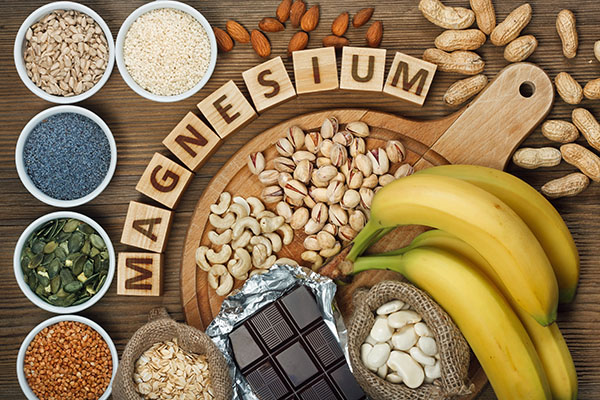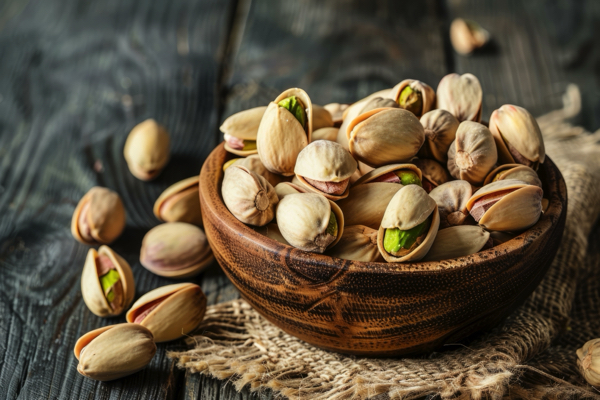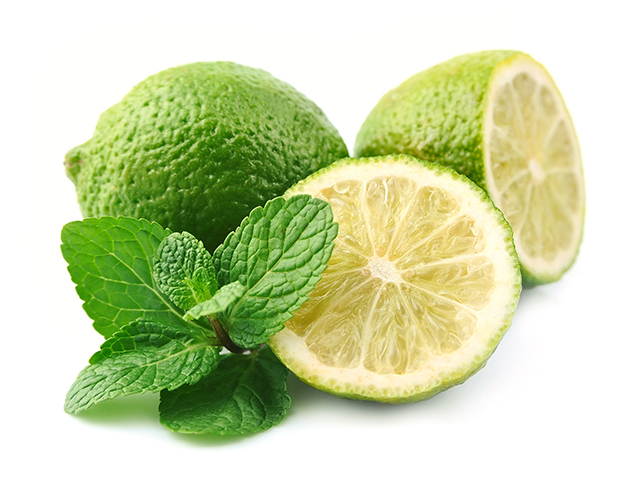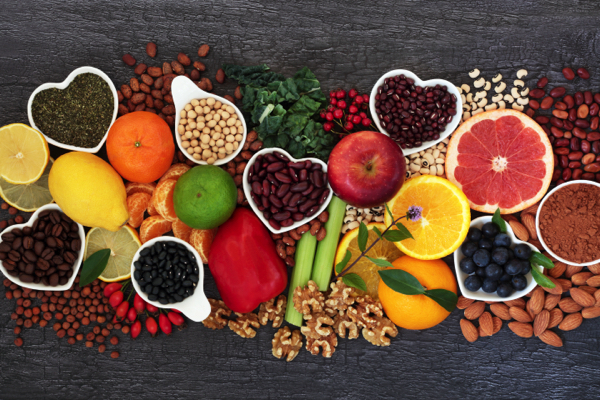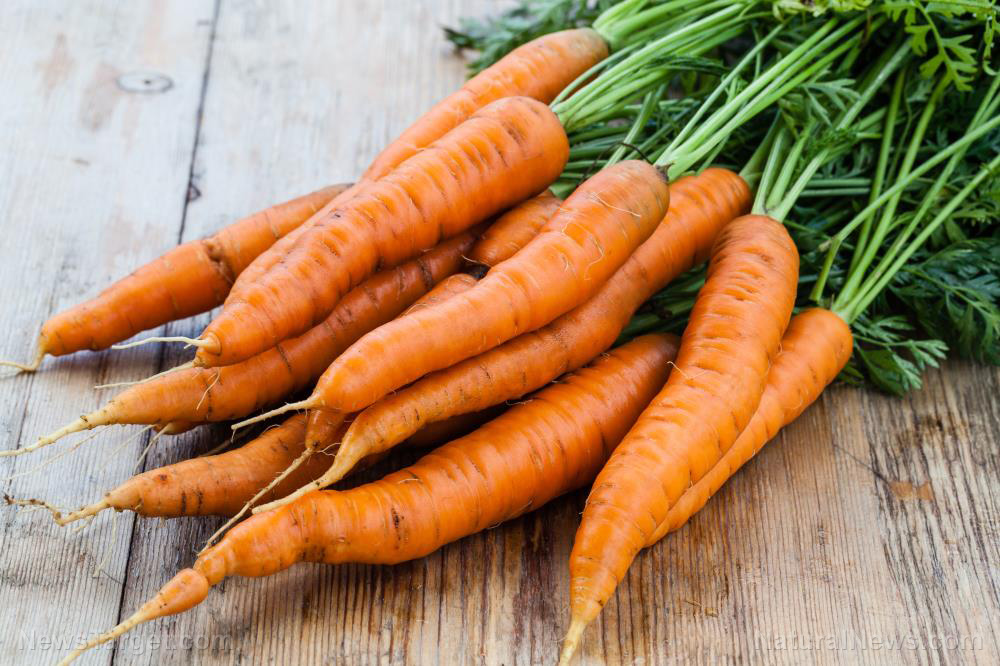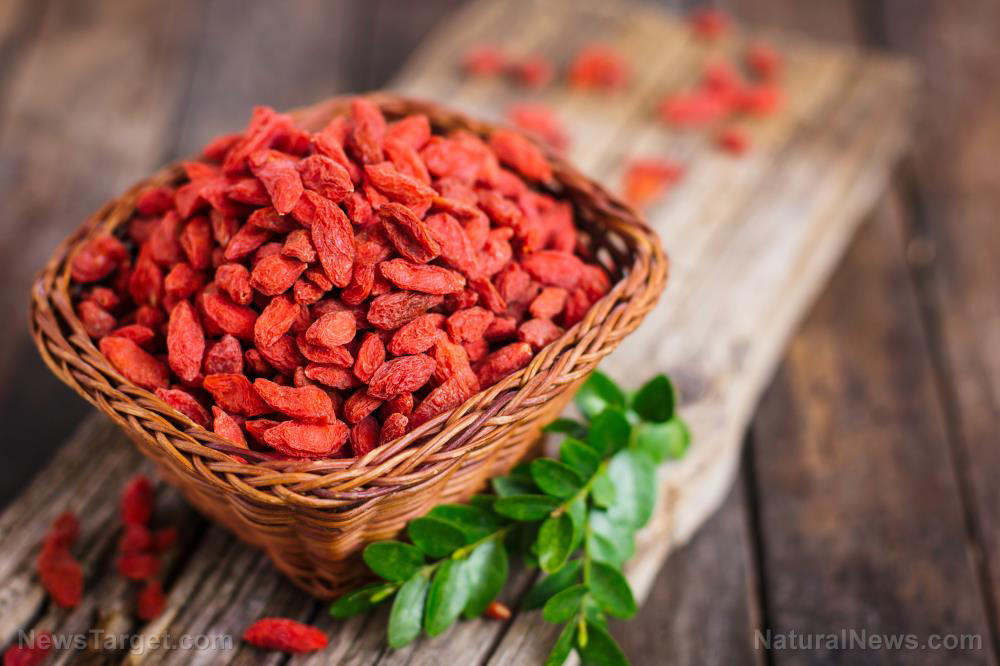Phenolic acids: The antioxidant powerhouse hidden in everyday foods
07/28/2025 / By Ava Grace

- Phenolic acids are plant-derived polyphenols with antioxidant properties, divided into two subgroups — hydroxybenzoic acids (e.g., gallic acid) and hydroxycinnamic acids (e.g., caffeic acid). They contribute to plant color, flavor and defense.
- These compounds offer multiple benefits, including antioxidant protection, anti-inflammatory effects, cardiovascular support, potential anticancer properties and neuroprotective effects against diseases like Alzheimer’s.
- Phenolic acids are abundant in fruits (berries, apples), vegetables (spinach, artichokes), whole grains, herbs and spices (cinnamon, turmeric), and beverages (coffee, tea, red wine).
- Used in ancient herbal medicine, phenolic acids were later isolated by scientists. Modern research validates their therapeutic potential, linking them to traditional diets like the Mediterranean diet.
- Incorporate phenolic-rich foods (e.g., smoothies, spiced lentils, dark chocolate) into your diet for disease prevention. Experts emphasize a plant-based diet but advise consulting a healthcare provider for personalized guidance.
Phenolic acids are a fascinating group of organic compounds found abundantly in plants, known for their potent antioxidant properties and diverse health benefits. These secondary metabolites, characterized by a phenolic ring and a carboxyl group, play a crucial role in plant defense mechanisms while offering significant advantages for human health. From reducing inflammation to combating chronic diseases, phenolic acids have captured the attention of nutritionists, researchers and wellness enthusiasts alike.
Brief history of phenolic acids
Phenolic acids belong to a larger family of polyphenols, which are naturally occurring compounds in plants. They are divided into two main subgroups: hydroxybenzoic acids (such as gallic acid and vanillic acid) and hydroxycinnamic acids (including ferulic acid and caffeic acid). These compounds contribute to the color, flavor and resistance of plants against pathogens and environmental stressors. (Related: Phenolic-enriched raspberry extract can decrease weight gain – even when eating a high-fat diet.)
In humans, phenolic acids are best known for their antioxidant activity, which helps neutralize harmful free radicals linked to aging, inflammation and chronic diseases like cancer and heart disease. Their ability to modulate cellular pathways makes phenolic acids a subject of ongoing scientific research.
While phenolic acids are best obtained through a varied diet, supplements containing concentrated forms (such as ferulic acid or chlorogenic acid) are available. However, experts recommend prioritizing whole foods, as they provide synergistic nutrients that enhance absorption. There is no established daily intake, but a diet rich in fruits, vegetables and whole grains typically provides sufficient amounts.
The study of phenolic acids dates back centuries, with early civilizations unknowingly harnessing their benefits through herbal medicine and traditional diets. Ancient Chinese and Ayurvedic practices utilized herbs rich in phenolic compounds for their healing properties. In the 19th century, chemists began isolating these compounds, leading to a deeper understanding of their structure and function.
Health benefits and dietary sources
Phenolic acids vary in color, from pale yellow (gallic acid) to dark brown (ferulic acid). They often contribute to the bitter or astringent flavors of edible plants, as seen in coffee and dark chocolate. Common names of phenolic acids include:
- Caffeic acid (found in coffee)
- Ferulic acid (abundant in oats and rice bran)
- Gallic acid (present in tea and grapes)
- Chlorogenic acid (notable in green coffee beans)
Phenolic acids are widespread in the plant kingdom, particularly in:
- Fruits: Berries (blueberries, strawberries), apples, cherries and citrus fruits
- Vegetables: Spinach, artichokes and potatoes
- Grains: Whole wheat, oats and brown rice
- Herbs and spices: Cloves, cinnamon, turmeric and rosemary
- Beverages: Coffee, tea and red wine
Phenolic acids offer a wide range of biological benefits, including:
- Antioxidant protection: They scavenge free radicals, reducing oxidative damage to cells.
- Anti-inflammatory effects: They inhibit pro-inflammatory enzymes, potentially lowering the risk of chronic diseases.
- Cardiovascular support: Studies suggest they improve blood vessel function and reduce LDL cholesterol oxidation.
- Anticancer potential: Some phenolic acids, like ellagic acid, have shown promise in slowing cancer cell growth.
- Neuroprotective properties: Emerging research indicates they may protect against neurodegenerative diseases like Alzheimer’s.
As chronic diseases rise globally, understanding the protective role of phenolic acids offers a natural strategy for disease prevention. Their presence in everyday foods makes them accessible, emphasizing the importance of a plant-rich diet.
By incorporating phenolic acid-rich foods into daily meals, individuals can harness nature’s defense mechanisms to support long-term health — an approach as timeless as it is scientifically validated.
This story is not medical advice and is not intended to treat or cure any disease. Always consult with a qualified naturopathic physician for personalized advice about your specific health situation or concern.
For more fascinating insights into superfoods and their natural wonders, visit NaturalNews.com. It’s a treasure trove of articles that will deepen your understanding of the healing power of food.
If you’re into cutting-edge technology with a health twist, try Brighteon.ai. Created by Mike Adams, the Health Ranger, this AI model is a free download that you can run on your own device. It’s all about sharing knowledge freely and bypassing the filters of censorship.
If you’re looking for a place to openly discuss everything from nutrition to natural remedies without any holds barred, Brighteon.com is the site for you. Don’t forget to check out these free speech social media platforms, Brighteon.IO and Brighteon.social, where the conversation is always lively and uncensored.
Blue berries are rich in phenolic acids. Watch this video to learn more.
This video is from the Health Ranger Store channel on Brighteon.com.
More related stories:
Eat strawberries, prevent diabetes?
Strawberries can help cure gastritis
Eating Apples Benefits the Heart
Dried apples regulate blood sugar levels
Reverse cardiovascular disease with cherries
Sources include:
Submit a correction >>
Tagged Under:
alternative medicine, anti-inflammatory, anticancer, antioxidants, food cures, food is medicine, food science, fruits, health science, Herbs, natural cures, natural health, natural medicine, Naturopathy, organics, Phenolic acids, phytonutrients, prevention, veggie
This article may contain statements that reflect the opinion of the author
RECENT NEWS & ARTICLES
COPYRIGHT © 2017 PHYTONUTRIENTS NEWS



